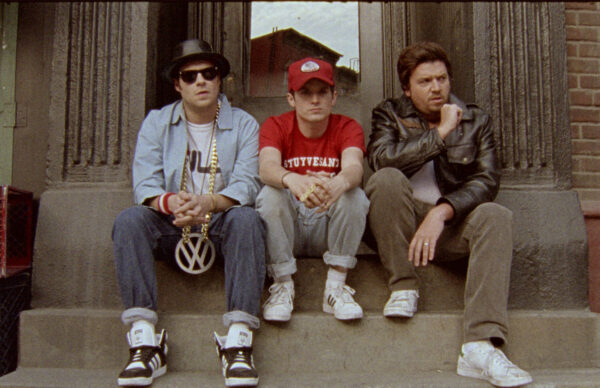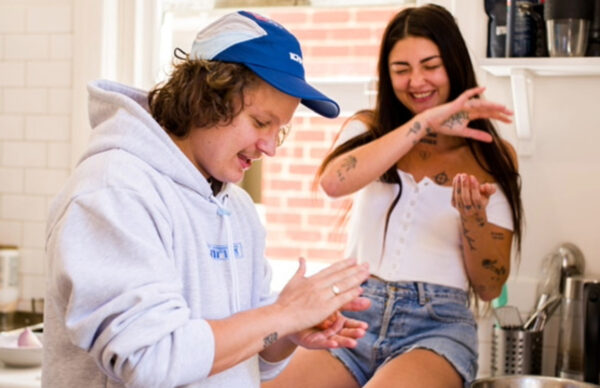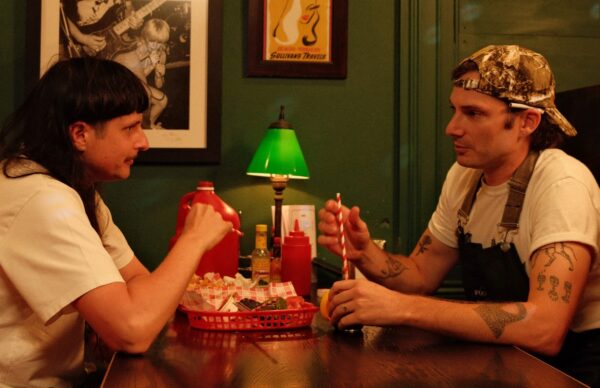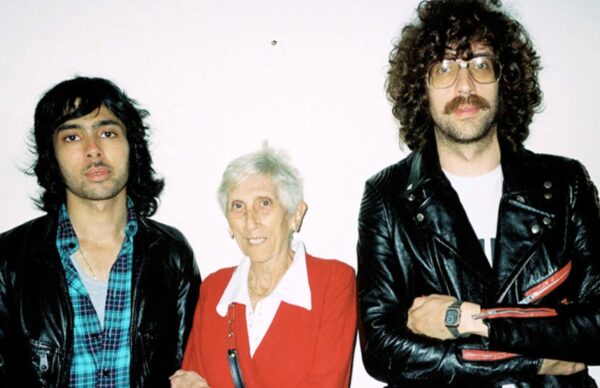Image by Maclay Heriot //
Is ‘Breathe In, Breathe Out’ our anthem for 2020?
There aren’t many figures in the Australian musical landscape that are as decorated as Ben Gillies. As the drummer and co-songwriter with Silverchair, he’s won 21 ARIAs, been streamed billions of times and attracted a legion of fans globally – it’s a lot to take in. In his first new music since 2012, ‘Breathe In, Breathe Out’ he implores us to take a step back and reflect before acting, which seems to be how he’s approached this new phase of his music journey.
Drawing on 70s rock, whilst maintaining the trimmings of modern production, the track has a floating feeling to it that is buoyed by whimsical vocal harmonies. Unlike his more recent post-Silverchair project Bento, Gillie’s takes things up an octave, craftily exercising his falsetto. We get a sense that he is comfortable here, both in range and genre, with the track allowing his songwriting ability to shine unpretentiously.
We caught up with Ben to chat about what life is like as a member of one of the biggest bands Australia has ever produced and how that affects his new project. Check it out below:
https://www.youtube.com/watch?v=dTVfRF94bAU&feature=youtu.be
How long have you been stewing on this project?
I reckon about four or five years. It’s one of those things where it’s not ready until it’s ready and it’s probably only the last 12 months that I’ve really focused back on my music. I think musicians are really good at procrastinating and I just felt like, for a little while there, I just kept coming up with other ideas and other things to do so I wouldn’t focus on ultimately what I love to do. I think we’ve all got a purpose and this planet and I think mine is to create and play music.
Your voice is a little more refined than what we heard in Bento, how have people reacted to hearing your voice?
It’s funny. Some people don’t even think it’s me singing, or they can’t believe it’s me singing. I guess with my history with Silverchair people always just think that you’re just a drummer, you’re like this kind of dude that just comes in and bashes away like a gorilla then walks away and doesn’t really have melodic sensibility or anything like that.
But in the wise words of Dave Grohl, “Let people think it.” You know, let them think that I’m a dumb drummer, that’s fine. And then you come out with tracks and just go, “Oh here you go. Check this out.”
It’s also your first project under your name. Is there a significance there?
I felt like the Bento record that I did was kind of like a musical purge of all these ideas that I had, that I didn’t have the opportunity to explore in Silverchair. I wrote a lot of the early days with Silverchair and on last couple of Silverchair records, Daniel took the lead on the writing. But you know, we all still contributed creatively, but I guess just not having that outlet that the Bento record also helped gain some of that confidence back in my songwriting.
I think the new stuff – maybe it’s an age thing, maybe it’s an experience thing – but I’ve just got my confidence back and I’m in a really good place musically. I feel like I’ve found my musical voice.
You use programmed drums on the single. Was that an artistic statement? Part of shedding the “drummer” skin?
I think it was just part of the writing process. It wasn’t a conscious decision to say, “I’m not going to play. I’m not going to pick up sticks and play drums on these first four tracks that I’m releasing.” I think it just kind of happened that way. I’ve been working with a producer in Byron Bay named Jordan Power and I guess just because it was the two of us in the studio we were limited in terms of what we could do playing as a band.
I’d say to Jordan, “Quick pull up the drum sound, I’ve got this idea.” Or, I’d have a guitar idea or whatever and then we’d lay down the guitar and then put a quick drum pattern down using a VST and a controller keyboard. I guess that’s the danger of demoitis, you know? You kind of fall in love with the vibe of it. We did try replacing some of the drums with the performance, but there was just a sparseness and just something cool and modern about using the programmed drums on the tracks that are coming out.
You play a barman in the video, how was the preparation for the role?
I had to work for a week to get ready for the part. [laughs] I’ll tell you something that no one has noticed; the whiskey that I pour, the guy in the video is called Frogstomp Whiskey. The director Joel Colthorpe and I talked about having a little bit of a Silverchair nod in there just for a bit of fun. And because there was a bar scene, and I was going to have a cameo in it, I said, “Oh it’d be pretty cool if I was pouring a Frogstomp whiskey.”
You’re probably one of the most recognisable Novocastrians getting round, does that ever get annoying?
Not really. For me, fame, being recognised and all that kind of stuff is just a byproduct of being incredibly fortunate to have had the experience that we had with Silverchair. It doesn’t mean anything. It doesn’t make you a better person. It doesn’t make you more important than anybody else. I see fame and being recognised and all that, it’s kind of like a currency. Like they’re the people that want to hear your music and listen to your stuff. That’s your market, that’s your currency.
Do you consider having been in Silverchair a hindrance or help when releasing your own music?
I think it’s a double-edged sword. In one sense people will compare my music to Silverchair but in the other sense it gives you a stage. People are interested in what you’re doing. That’s not the goal of what you do creatively, ultimately what you do, what you produce, that’s the payoff. But to be able to release music and have people really excited to hear it and interested in what you’re doing is really nice. That’s just lovely. That’s a cool thing to have.
If it wasn’t for Silverchair maybe I wouldn’t be in that position. But again, I don’t really like using sentences with “shoulda, woulda, coulda, if, what, or maybe.” That is my reality, so I’ll just be thankful for it and roll with it.
Are there any lessons you’ve learned from your time in Silverchair that you have applied to this project?
Do’s and don’ts. I don’t know. No, not really. I’ve got enough experience that I just know to follow my gut feelings and just roll with it. You know, you can’t hold onto regrets. I don’t think I’d change anything. I’m really happy with how everything’s panned out. I’m really happy with where I’m at, and I’m excited for the next 12 months to two years to see where I get to once there’s more music out there and people see what I’ve been working on.






